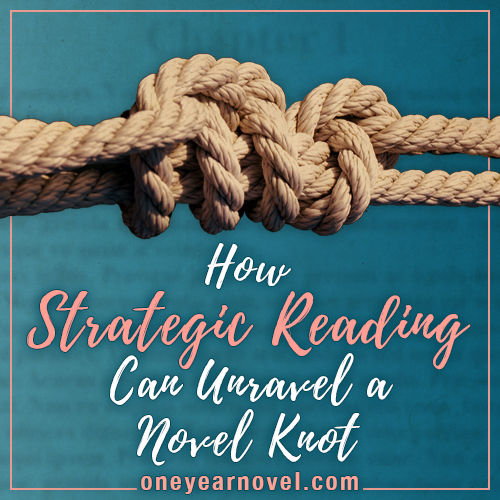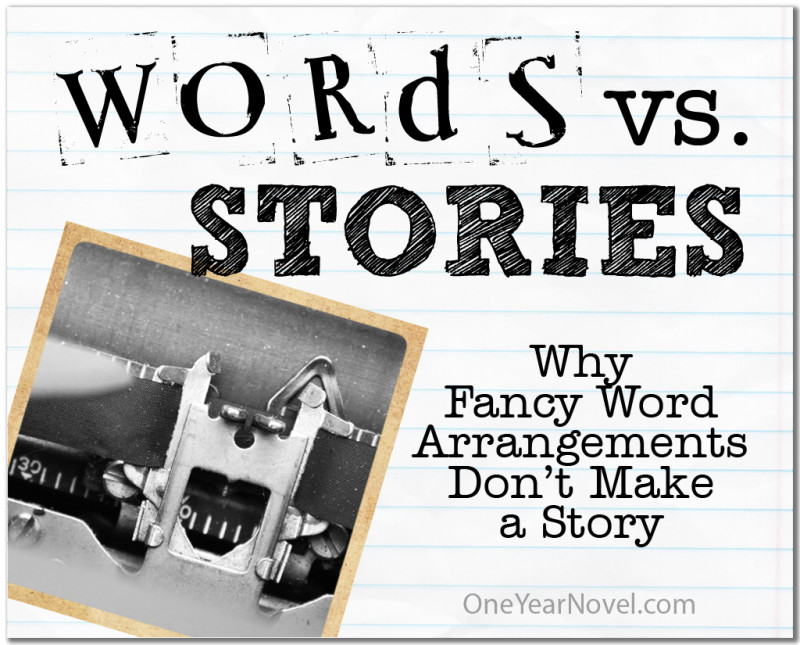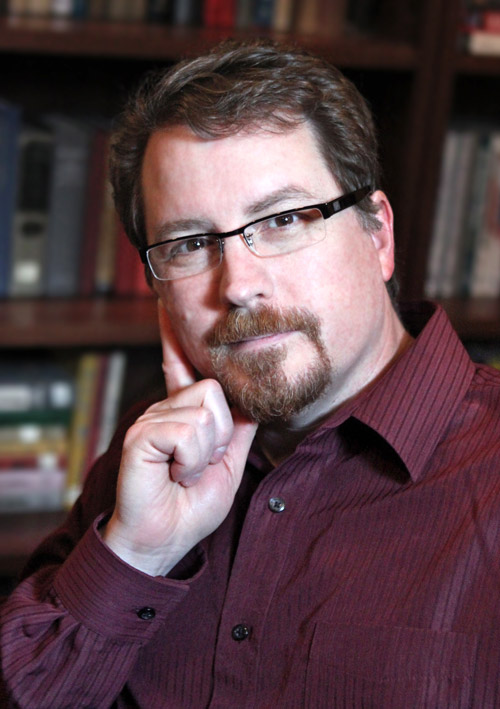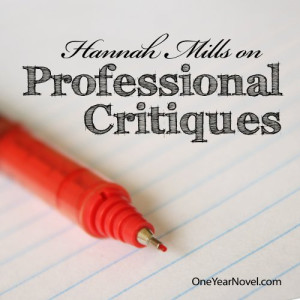How Strategic Reading Can Unravel a Novel Knot
 By Rachel Garner, Staff Writer
By Rachel Garner, Staff Writer
I am writing a medieval historical fiction novel that deals heavily with post-traumatic stress disorder (PTSD) and depression. The idea’s been renting a leaky attic in my brain for around eight years. When I pulled it out again in January of 2016 and looked at the mess, the thought crossed my mind, There is nothing like this out there.
I didn’t know of a story like the one I wanted to tell. Serious consideration of mental illness and medieval fiction don’t really cross paths. This was why my story excited me. But it was also why it continued to baffle me.
Reading is supposed to be one of the writer’s major tools, and I was utilizing it: I read a lot. I read in my genre, I read books on craft, and I read lots of nonfiction about PTSD and abuse. I had all the tools I’d been told to gather. But still I hesitated. What was I missing?
The answer came to me in a roundabout way. I like to read middle grade fiction. In February 2016, a friend of mine read and reviewed a book called The Thing About Jellyfish. It’s a middle grade novel set in contemporary times that deals with grief. Huh, I thought, I have a character who is grieved. So I moved it to the top of my list and read it.
In June, this happened again. Wolf Hollow had come out, and it had a major character with PTSD. It was also middle grade, and set during World War I. Although I assumed it was going to deal with combat trauma (the more common understanding of the disorder), this was an interesting enough combination that I quickly placed a hold on it at my library. I had nonfiction knowledge of PTSD—how would a book aimed at a fairly innocent age group handle it?
There were things I liked and disliked about both of these novels—they each earned a solid but undistinguished three stars from me—but they gave me an important insight: even though medieval historical fiction writers weren’t writing about what I wanted to explore, plenty of other authors were.
I embarked on what I like to call directed reading. You could also call it strategic reading. I continued to read books I was simply interested in, but I intentionally moved books of any genre that seemed to touch on something I wanted to get across in my book to the top of my list.
I read books either about or containing traumatic experiences: Gossamer, Speak, What Jamie Saw, Afterward, even Amy & Roger’s Epic Detour. I read books with characters who were depressed, mentally ill, or mentally abnormal: Navigating Early, A Monster Calls, Challenger Deep, Stuck in Neutral, The Bronze Bow. I paid attention to the ways characters were represented and how they interacted.
I also read some books just because I knew they had abnormal story structure, like Illuminae, The Martian Chronicles, and Challenger Deep again. I was toying with an abnormal structure and wanted to see ways authors had made it work (or not work!), even if it was a completely different abnormal than mine.
I continued reading medieval and Renaissance books, with The Passion of Dolssa; Jepp, Who Defied the Stars; and Robin Hood stories. I watched for grief and isolation and characters who felt trapped. And I watched for those things in contemporary, historical fiction, the surreal and fantastical, and science fiction. I watched in middle grade, young adult, and adult novels.
Sometimes, I’d even get into a book I didn’t enjoy too much, notice that it had one of these elements, and instead of abandoning it, as I usually would, keep plugging just to see how that element played out.
Sometimes I liked how authors addressed things; sometimes I didn’t. I paid attention to what satisfied or didn’t satisfy me.
How did all this directed reading impact me?
I actually credit Challenger Deep, a YA contemporary with heavy surrealist tones—due to the exploration of schizophrenia—for giving me the courage to start my novel, and format it in dozens and dozens of small scenes. Challenger Deep proved to me that short scenes could work.
Afterward provided a model for an excellent split-point- of-view novel.
Illuminae showed me exactly what I didn’t want from a character who supposedly has PTSD.
A Monster Calls offered me an outstanding and poignant portrayal of grief, and also, the kind of final emotion I am not after.
My intent in this post is not to shove my Goodreads habits at you (although I’m doing a fair bit of that), but to get you thinking outside of your genre, your craft books, and your nonfiction research. This has been so helpful to me that I want to share the discovery. If you resonate with my story predicament, here are some questions to ask yourself:
How are your fellow authors putting the ideas you wrestle with to work on paper?
Are there elements in your story that seem out of place in your genre?
If so, do authors explore them freely in other genres?
Even if you feel confident in what you’re doing, it could be that authors in a different genre have hammered out the element to such an extent that they can show you some of the hidden pitfalls.
My directed reading was a fairly simple formula, easily grafted into my regular reading. I still love my nonfiction dearly, but seeing these concepts “at work” in other writers’ fiction has been incredibly instrumental in forging the path to the story I so want to tell. If you’re feeling baffled, it may be time to pause your story development to make a directed reading plan.
…
Have you ever read a novel that became part of a larger road map for where you wanted your own work-in-progress to go?
…
Rachel was one of the seven students—or self-labeled “guinea pigs”—who took part in the pilot class for The One Year Adventure Novel. Since joining staff in 2010, she has done everything from shipping curriculum to planning workshops. She enjoys mentoring and engaging with students at every level of the program, and is a Story Coach.
She is now a graduate of both homeschooling and the University of North Carolina at Greensboro, where she earned a BA in History by willingly reading 650 medieval law disputes. She spends her days organizing books, alternatively laughing or crying over medieval people, plotting ways to return to the United Kingdom, and writing Robin Hood stories.




Wow! This is very insightful, Rachel! Thanks for sharing. 🙂
I’ve been struggling with better developing my characters — which isn’t a condition, but writing varied personalities is hard for me to work with right now.
How you described “Directed Reading” made me think of something along the lines that I was doing. I haven’t been reading a ton of books, but there was a story world I came across in which every single character has a UNIQUE personality. I then started contemplating a fan-fic in that realm. What I’m trying to say is, I had found a story that has a wild range of character personalities and (by pondering fan-fic) I have to stretch myself into thinking how these varied charries would.
Anyway, great post and great insight! Keep up the good work! 😀
That does sound like something that is along the same line! I hope that continues to be helpful to you.